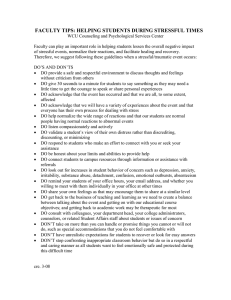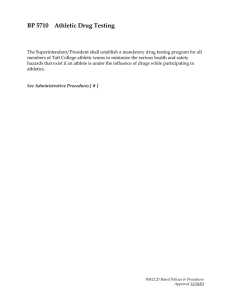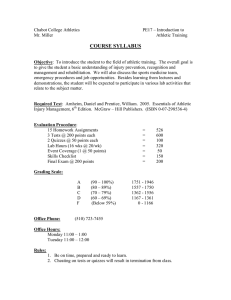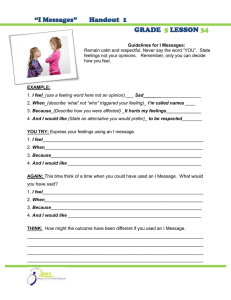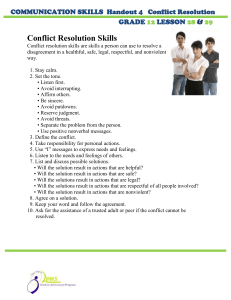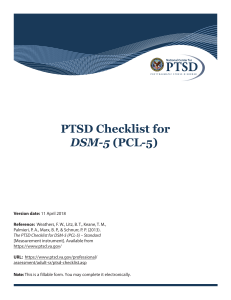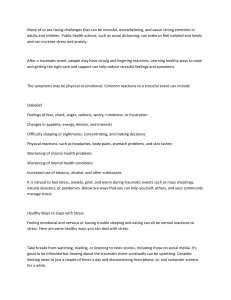ATHELETIC DEPARTMENT STAFF TIPS: HELPING STUDENTS DURING STRESSFUL TIMES
advertisement
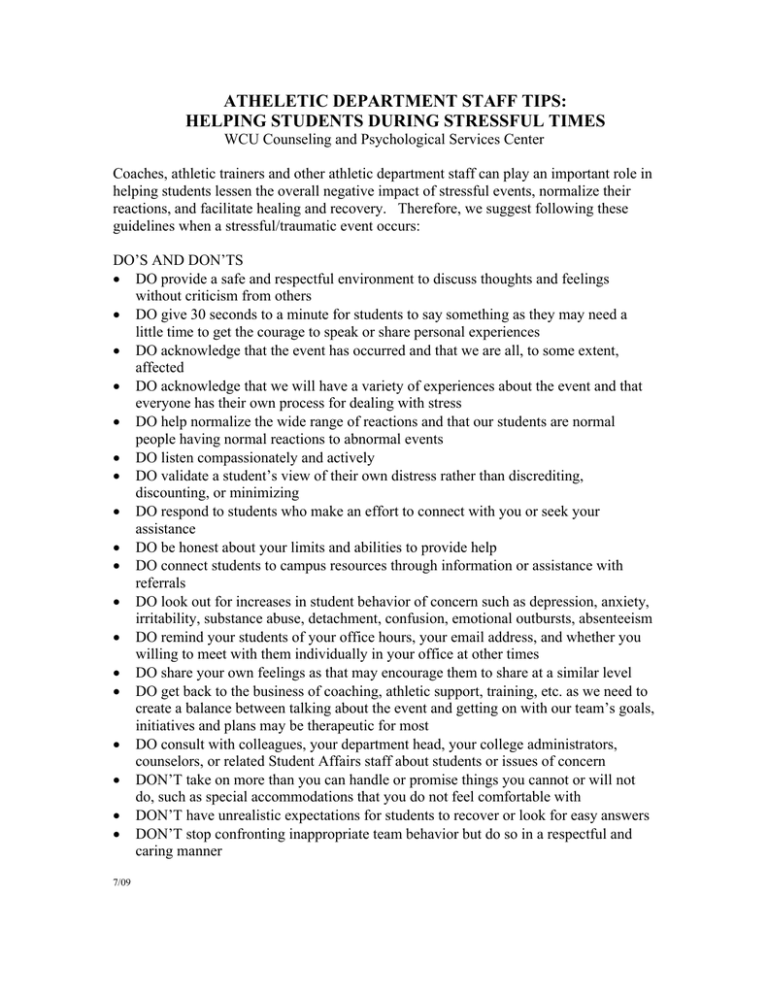
ATHELETIC DEPARTMENT STAFF TIPS: HELPING STUDENTS DURING STRESSFUL TIMES WCU Counseling and Psychological Services Center Coaches, athletic trainers and other athletic department staff can play an important role in helping students lessen the overall negative impact of stressful events, normalize their reactions, and facilitate healing and recovery. Therefore, we suggest following these guidelines when a stressful/traumatic event occurs: DO’S AND DON’TS DO provide a safe and respectful environment to discuss thoughts and feelings without criticism from others DO give 30 seconds to a minute for students to say something as they may need a little time to get the courage to speak or share personal experiences DO acknowledge that the event has occurred and that we are all, to some extent, affected DO acknowledge that we will have a variety of experiences about the event and that everyone has their own process for dealing with stress DO help normalize the wide range of reactions and that our students are normal people having normal reactions to abnormal events DO listen compassionately and actively DO validate a student’s view of their own distress rather than discrediting, discounting, or minimizing DO respond to students who make an effort to connect with you or seek your assistance DO be honest about your limits and abilities to provide help DO connect students to campus resources through information or assistance with referrals DO look out for increases in student behavior of concern such as depression, anxiety, irritability, substance abuse, detachment, confusion, emotional outbursts, absenteeism DO remind your students of your office hours, your email address, and whether you willing to meet with them individually in your office at other times DO share your own feelings as that may encourage them to share at a similar level DO get back to the business of coaching, athletic support, training, etc. as we need to create a balance between talking about the event and getting on with our team’s goals, initiatives and plans may be therapeutic for most DO consult with colleagues, your department head, your college administrators, counselors, or related Student Affairs staff about students or issues of concern DON’T take on more than you can handle or promise things you cannot or will not do, such as special accommodations that you do not feel comfortable with DON’T have unrealistic expectations for students to recover or look for easy answers DON’T stop confronting inappropriate team behavior but do so in a respectful and caring manner 7/09
